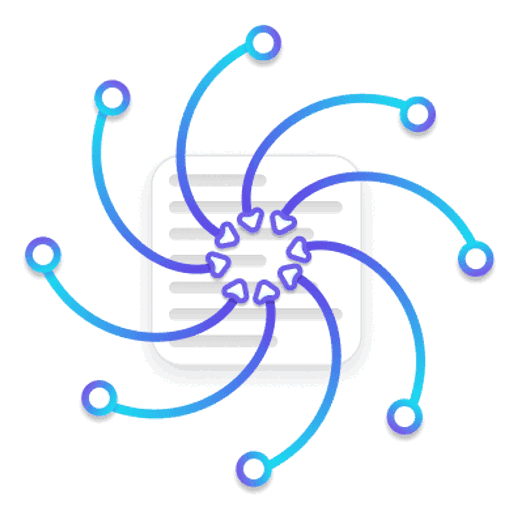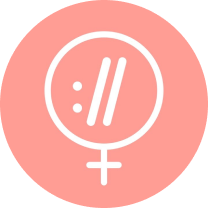
Linking the News: Off-page SEO for News Publishers
Published August 9, 2024
Stop everything you’re doing – because everyone’s favourite Head of Digital Marketing at Vixen, Emina Demiri-Watson, is BACK! This is the last in her series of articles covering SEO considerations specific to news sites and publishers, and today she’s diving into off-page SEO (a.k.a link building). Haven’t read the first three instalments yet?👇
Off-page SEO for publishers is an interesting area because, usually, it’s publishers that are the target of other companies trying to secure links or mentions.
Yet this does not mean they are immune to Google’s off-page ranking signals.
Just like any other website, a news publisher site must recognize the power of off-page SEO in order to be successful in search. If anything, due to the nature of the news business, there are even more opportunities for some masterful off-page SEO.
Contents:
- What is off-page SEO?
- Why is link building important for news publishers?
- 4 link building tactics for publishers
What is off-page SEO?
As the name itself suggests, off-page SEO are strategies and tactics SEOs use off-site. Examples include backlink campaigns, PR and social media campaigns to increase branded traffic and much more.
Why is link building important for publishers?
It all started back in 1996 when founders of Google, Larry Page and Sergey Brin, developed PageRank– the Google algorithm that measures how important a page is by looking at the quality and quantity of links pointing to it.
The logic is simple: more quality links means better rankings. SEOs back in the day even had access to a PageRank Toolbar where they could clearly see the PageRank score. The existence and transparency of PageRank gave birth to a whole industry of backlink providers intent on “cheating the algorithm” by charging for backlinks.
These practices are still around but PageRank is no longer a visible metric. And, there are discussions in the SEO community about its weighting in the overall ranking signals.
In the latest Semrush Google Signal report, off-page elements, such as Semrush’s Authority Score (AS), rank number 6 in importance when it comes to the correlation with the first 20 positions on SERP.

Looking closely into the backlink factors, yet again AS comes on top, followed by page level AS and number of referring domains.

Take this with a pinch of salt.
Authority Score is not an official Google signal, rather it is a proprietary metric by Semrush. Nevertheless, while the power of off-page SEO, and in particular backlinks, to improve rankings has decreased in recent years, off-page signals still remain an important element for any SEO strategy.
Content API Warehouse documentation: link focus
The importance of links can also be seen in the recent leak of the Content API Warehouse documentation.
Just to be clear, the leak does not tell us the confirmed Google ranking signals. But it contains 2,500 modules and over 14,000 attributes, some of which are link-related. Understanding those is a great way for publisher SEOs (and any other SEO!) to think about their linking strategies – and to test!
One of the best write-ups on the link-related attributes and modules comes from the team at Digitaloft.
Want all the tips from the Google docs leak? Join our upcoming webinar where Dr Marie Haynes explains all. Register now
I found a few takeaways more interesting than others when applied to news publishers.
Local relevance
Links from sites in the same country are potentially more valuable. The documents reference "localCountryCodes," indicating local relevance could contribute to a link’s value.
Many local publishers will naturally acquire links from relevant local sources. After all, they report on current local affairs! But the existence of "localCountryCodes," confirms the importance of local news not just for local publishers. Any publisher looking to build links should be looking at optimising their news pieces for geo-targeted link building.
There is value in emphasising local news coverage to attract links from locally relevant sites.
Site authority score and news site links
The documents reveal a "siteAuthority" score, which likely differs from Moz’s DA or Ahrefs’ DR, potentially incorporating broader quality signals beyond just link-based metrics.
Links from high-quality news sites are tagged specifically, suggesting these links might be more valuable due to their authoritative nature.
As news sites are often considered high-quality sources, leveraging this inherent authority is crucial. This applies to both outbound and inbound links. Outbound links from news articles need to go to credible, relevant sources to maintain the site’s authority.
Your link building strategies should also target other news publishers as they, like you, have higher authority. This is where creating quality stories that will be picked up by other outlets is key. When you write a great story you know has the potential to get linked to from other publishers, make sure you shout about it!
Seed sites and link distance
We spoke previously about PageRank. The documentation suggests that PageRank has now been replaced by PageRank-NearestSeeds.
The term seed websites has been around for a while. Back in 2018 Bill Slawki wrote that, in essence, there are 102 “seed” (specially selected high-quality) pages, which provide good web connectivity to other non-seed pages. The two examples he used were The Google Directory (it was still around when the patent was first filed) and the New York Times. Yes, unsurprisingly NYT is a seed.
SEOs working in publishing should understand the concept of seed sites and aim to be linked by or closer to these trusted sources to enhance link value. In practice, this amounts to striving to build relationships with other high-authority publishers to improve your own site's standing in Google's link distance ranking.
Link building tactics for publishers
Often the same tactics we would recommend to any organisation when it comes to off-page SEO, also work for publishers. In fact, for many publishers, they are in the prime position to be even more effective!
Here are a few examples of how you can build off-page signals that will help your news and evergreen pieces rank better and your publisher's website earn more authority overall.
A quick search for off-page SEO tactics will give you many ideas to start with, tactics such as:
- Organic link building
- Digital PR
- HARO link building
- Link Outreach
- Directory link building + Google My Business
- Increasing keyword pools
- Broken Link building
- Link Intersect Building
- Brand Mention link building
And many more!
And, while there is no right or wrong tactic, one thing to note is that you should NOT BE BUYING LINKS. Buying links is considered to be manipulative and can lead to a Google penalty.
Here are a few tactics that we usually recommend to our clients.
1. Organic link building
At Vixen, of the following tactics, the one we believe in the most is organic link building. This is how links should really be done – they should be earned naturally with amazing content.
For publishers, more than for any other business, this type of link building is a no-brainer because it really does happen A LOT, if your publication is quick enough and good enough at publishing news.
Here are just two examples of links gained by our client Retail Bulletin:
Hubspot, a trusted SaaS platform, quoted them in their guide using a ‘dofollow’ link.

Here is just one example of a ‘nofollow’ link gained organically. The publication is The Guardian, a leader in the news industry.

If there is anything to be learned from the recent API leak and the previous DOJ Antitrust Trial, it’s that essentially search is very much about clicks (Navboost!) and links. And, what ties those two together is great content and a sound technical foundation!
Publishers who write great news, have the technical SEO basics nailed, and optimise their news for search are in the best position to gain both links and clicks naturally.
2. Digital PR
It can seem counterintuitive for publishers to consider working with a PR company. After all, they are the ones that usually get harassed by public relations professionals trying to place their client's stories into their publications. That doesn't mean that news SEOs should completely ignore Digital PR as a legitimate link building strategy.
Digital PR can be delivered in-house by the SEO. For example, if you know there is an upcoming breaking news piece about to hit the “press”, prepare to do some outreach beforehand. Plan how you will pitch the piece to news organisations or reputable sources that might be interested.
Additionally, and maybe even more importantly, rather than thinking about link building as only that, a link on a page, publishers should think about it as a part of the E-E-A-T building process; building trust with users and search engines by getting your brand name out there strategically in places where your audience is. Digital PR as a strategy helps with this as well.
A great Digital PR company that knows your audience can help you get the reach and off-page signals in the right places, not because you want to manipulate the rankings but because it makes sense for your business.
3. HARO link building
Haro link building is another interesting one for publishers. HARO stands for Help a Reporter Out. As it says on the tin, it’s a service that lets you track requests from journalists for input on a number of different topics. Companies are asked to pitch to be included in the articles.
Many publications themselves use this service to enrich their own news. In that sense, your publication is the recipient of the pitches and the link publisher. But this does not mean you can't be the one that also pitches to other journalists if the request is relevant!
Two examples of how this might work in practice include:
Expert opinions
If your publication has specific journalists who are experts on a topic, pitching their opinions is a good way to acquire links. Let’s say you work for a specialist publication for retail news. Any retail-related requests are a great opportunity for your expert journalist to add insightful comments or data. This positions your publication as an authority and opens up a chance for a valuable backlink.
Unique data or research
Many of the HARO requests are from journalists who are often looking for exclusive insights and statistics. If your publication has conducted original research or surveys, use HARO to get the word out about this unique data.
4. Mentions, broken link building and outreach
Closely related to Digital PR are brand mentions.
Unlinked brand mentions are online mentions or citations of your brand that don’t link back to the website. This happens often in news publishers! They cite your story but fail to provide a link to it.
Partly this is due to the speed of news, journalists just write the story and links are often an afterthought. Plus, SEO for publishers is so complex that things can easily be forgotten or fall down the priority list.
These forgotten links are a great strategy for link building. Use SEO tools such as Semrush to track mentions without a link and reach out to the editor of the publication in question and ask for a link.
Similarly, broken links can be tracked with SEO tools and requests can be made to the websites to fix the link in question.
❗One thing to note with broken links, brand mentions and link outreach in general is that the results may be limited. Particularly link outreach where you are trying to get a link by asking a website owner to add one. We have found that more often than not link outreach doesn't get results and most website owners will try and charge you for the link.
❗The best link building strategy is something you already should be doing as a publisher: excellent reporting, optimised for search that gains natural links!
TL;DR summary
Off-page SEO remains a vital element of any SEO strategy. Let’s face it, links are important even for publishers.
Ultimately, the best off-page SEO strategy for publishers is to get their technical in order and to continue producing excellent, search-optimised reporting that naturally attracts high-quality links and drives traffic.
But this doesn't mean you should not care about proactive off-page SEO at all. Particularly if you are a new publication or a smaller publisher with lower authority.
Bigger publishers might get away with not investing in any proactive link building. After all, they already have authority that helps them rank better and their reporting naturally gains links.
For smaller publishers with lower authority, however, link building strategies such as digital PR, using HARO, and addressing unlinked mentions and broken links, might be what’s needed to give them that extra ranking push.
You might also like:

Sitebulb is a proud partner of Women in Tech SEO! This author is part of the WTS community. Discover all our Women in Tech SEO articles.

Emina is the Head of Digital Marketing at Vixen Digital, a Brighton UK-based digital marketing agency. She has over 10 years of experience in SEO and digital marketing. Her special connection to publishers also comes from her BA in Journalism. Emina’s marketing passions include technical/on-page SEO, analytics, channel alignment and automation.
Articles for every stage in your SEO journey. Jump on board.
Related Articles
 Webinar Recording: SEO for News & Publishing Brands
Webinar Recording: SEO for News & Publishing Brands
 Front-page Round-up: On-page SEO and UGC for Publishers
Front-page Round-up: On-page SEO and UGC for Publishers
 Automating SEO in a Publishing Business
Automating SEO in a Publishing Business
 Sitebulb Desktop
Sitebulb Desktop
Find, fix and communicate technical issues with easy visuals, in-depth insights, & prioritized recommendations across 300+ SEO issues.
- Ideal for SEO professionals, consultants & marketing agencies.
Try our fully featured 14 day trial. No credit card required.
Try Sitebulb for free Sitebulb Cloud
Sitebulb Cloud
Get all the capability of Sitebulb Desktop, accessible via your web browser. Crawl at scale without project, crawl credit, or machine limits.
- Perfect for collaboration, remote teams & extreme scale.
If you’re using another cloud crawler, you will definitely save money with Sitebulb.
Explore Sitebulb Cloud
 Emina Demiri-Watson
Emina Demiri-Watson


